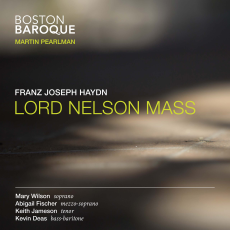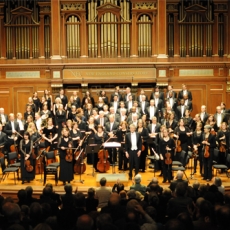Boston Baroque - Haydn: Lord Nelson Mass - Infodad.com
Haydn's works are quite well known already, of course, and he is a Classical rather than Baroque composer - but the involvement of Boston Baroque with his music shows some ways in which these two musical eras have more in common than listeners may realize. They did, after all, overlap! Haydn's Lord Nelson Mass (formally known as Missa in Angustiis or Mass in Troubled Times), is scored by an accident of economic history only for strings, trumpets, timpani and organ: the wind players had been laid off. This dark-hued Mass is one of the composer's greatest works - some say the greatest. And although it is a preeminently Classical-era work, strongly influenced by Haydn's experiences with the London symphonies that he had completed several years earlier, it is also a work that draws distinctly on Baroque traditions while looking ahead (largely through its anguished first movement, the Kyrie) toward the Romantic era. A substantial work in every way, with unusually virtuosic writing for the soprano and bass soloists, this Mass moves from despair to acceptance, from terror to joy, with a sureness of construction and certainty of belief worthy of Bach. Boston Baroque under Martin Pearlman handles the Mass with beautiful balance between voices and orchestra - Haydn by this time was giving the instruments a really significant role in his vocal works - and all the soloists rise to the occasion wonderfully throughout, producing a post-Baroque choral work thoroughly informed by Baroque sensibilities that it reinterprets for its own time and, in doing so, for later times as well, including ours. And coupling the Mass, which dates to 1798, with Symphony No. 102, from 1794, is a wonderful decision, since the dynamics and orchestral balance that Haydn refined so brilliantly in his final symphonies became foundational for his last six Mass settings, including the Lord Nelson Mass. Hearing the sacred and secular works juxtaposed shows very clearly in just how many ways they are the products of similar thinking - and yet in how many ways they differ in their approaches and effects. The Baroque has in a very real sense been rediscovered by performers and audiences in recent decades, and recordings like this Linn Records SACD of Haydn show just how lively and alive that rediscovery has been - and with how much power and wonder the Baroque era has continued to speak to the twentieth and twenty-first centuries.

